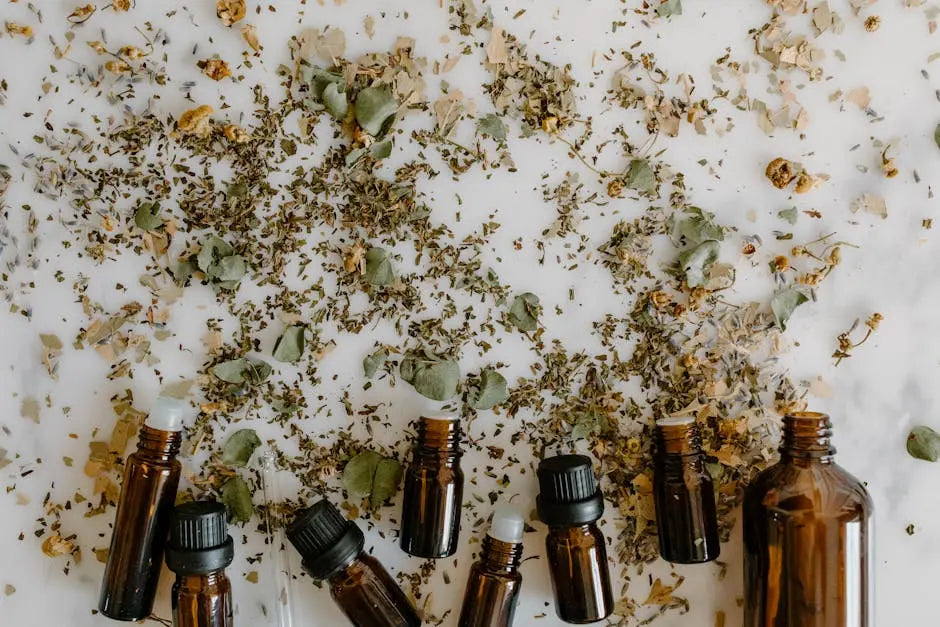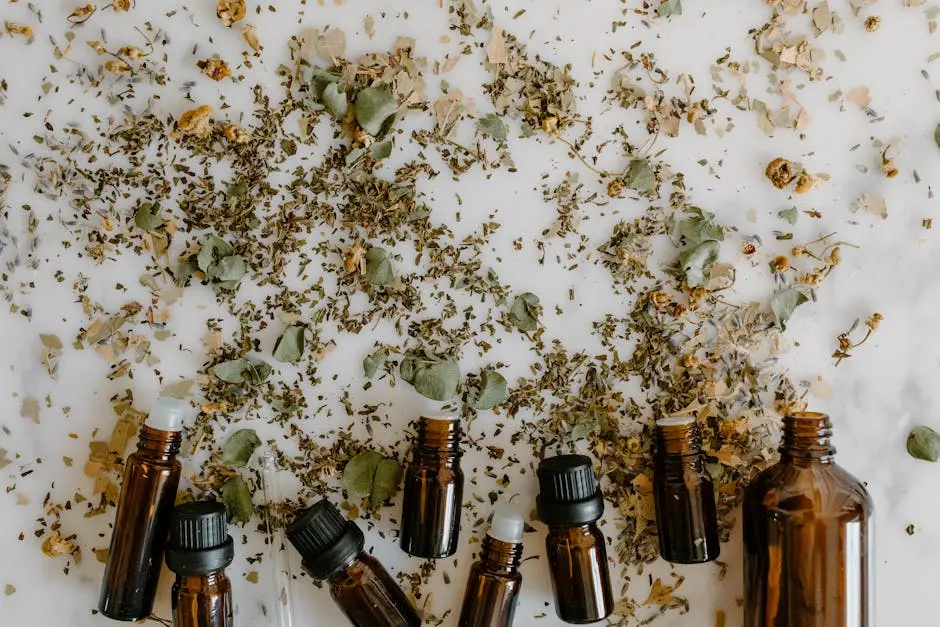
Exploring the Science Behind Plant Extracts and Their Benefits
Share
Plant extracts have been cherished for centuries for their therapeutic properties and natural healing abilities. Understanding the science behind these extracts helps us unlock their full potential and incorporate them effectively into our daily lives.
Understanding Plant Extracts: Nature’s Concentrates
Plant extracts are derived from various parts of a plant, such as leaves, flowers, roots, and seeds. Each part contains unique compounds that offer specific benefits, making extracts highly valued in health and wellness industries.
For centuries, cultures around the world have harnessed the power of plants for medicinal purposes. From the soothing effects of chamomile to the invigorating properties of rosemary, each extract holds a key to specific health benefits. The long history of traditional medicine underscores the significance of plant extracts, blending ancient wisdom with modern science. As our understanding of these extracts deepens, we are able to target and maximize their uses more effectively in products ranging from dietary supplements to therapeutic creams and natural remedies.
Diving into the world of plant extracts reveals a treasure trove of phytochemicals, which are naturally occurring compounds found in plants. These include alkaloids, flavonoids, terpenes, and polyphenols, each playing a role in supporting bodily functions and enhancing health. For instance, flavonoids, known for their antioxidant properties, help combat oxidative stress, potentially reducing the risk of chronic diseases. Such compounds have triggered a surge in research, aiming to further explore and substantiate the health claims associated with these natural products.
The Science of Extraction: How Plant Extracts Are Made
The extraction process involves isolating bioactive compounds from plants. Techniques like cold pressing, distillation, and solvent extraction allow for the concentration of these beneficial compounds, maximizing the extract’s potency.
Each method of extraction has its unique advantages and is selected based on the properties of the plant materials and the desired end product. For instance, steam distillation is commonly used for extracting essential oils, as it helps in preserving delicate aromas and ensuring purity. Solvent extraction, on the other hand, is often employed for herbs with high concentrations of flower petals or resins, utilizing alcohol or other solvents to draw out complex compounds. The end result of these processes is potent extracts that retain the therapeutic qualities of the original plant, albeit in concentrated forms.
Interestingly, some methods are highly tailored; take for example supercritical CO2 extraction, a technique that uses carbon dioxide under high pressure and temperature to free plant compounds. This method is particularly prized in industries striving for purity without chemical residues, such as in producing natural flavorings and fragrances. Innovative extraction techniques continue to evolve, allowing for cleaner and more efficient processes that align with the growing demand for sustainable and eco-friendly practices.
Unveiling the Benefits: Why Plant Extracts Matter
Plant extracts are celebrated for their health-promoting properties, including anti-inflammatory, antioxidant, and antibacterial effects. They are utilized in various products, from skincare to supplements, helping to improve overall well-being.
A well-known benefit comes from the antioxidant properties of many extracts, which can help combat free radicals in the body and reduce oxidative stress. This action is crucial in maintaining cellular health and preventing damage that could lead to chronic conditions such as heart disease and cancer. Extracts like green tea are hailed for their high concentration of these antioxidants, offering robust support for a healthy lifestyle.
Anti-inflammatory properties further establish plant extracts as significant allies in promoting health. Turmeric, with its active compound curcumin, has been extensively studied for its ability to reduce inflammation at the molecular level. Such natural options present viable alternatives to pharmaceutical drugs, particularly for individuals managing chronic pain or autoimmune conditions who are seeking more holistic approaches.
Popular Plant Extracts and Their Applications
Essential oils like lavender and tea tree oil are widely known for their calming and antiseptic properties. Meanwhile, extracts like ginkgo biloba and echinacea are renowned for boosting cognitive function and immune support.
Lavender oil, often regarded as a versatile essential oil, is used in everything from aromatherapy to personal care products due to its calming and anti-anxiety effects. Its ability to promote relaxation and improve sleep quality makes it a staple in many self-care regimes. Tea tree oil, another popular plant extract, is lauded for its powerful antiseptic properties, making it a common ingredient in cosmetics and topical treatments targeting acne and minor skin infections.
Furthermore, ginkgo biloba, known traditionally in Asian medicine, is widely used today for its ability to support brain health and memory enhancement. Similarly, echinacea is often incorporated into supplements aimed at boosting the immune system, especially during cold and flu seasons. Such extracts exemplify the diverse ways in which plant-derived compounds can be utilized, showcasing their adaptability and efficacy in addressing various health needs.
Incorporating Plant Extracts into Your Daily Routine
Integrating plant extracts into daily life can be simple and effective. Whether using them in aromatherapy diffusers or skincare routines, these natural wonders can enhance your well-being when used correctly.
A simple way to get started with plant extracts is by adding them to your daily skincare routine. Products infused with chamomile extract can help soothe sensitive skin, while those containing rosehip oil may aid in reducing signs of aging such as fine lines and wrinkles. Such skincare solutions allow you to harness the botanical potency of nature conveniently and effectively.
Additionally, incorporating supplements derived from plant extracts into your diet can contribute to overall wellness. Consider adding turmeric supplements to leverage their anti-inflammatory benefits, or taking an omega-3 rich flaxseed oil to support heart health. When selecting supplements, it’s important to choose reputable sources that ensure purity and quality, optimizing your intake of these plant-derived nutrients.
For those inclined towards aromatherapy, using a diffuser with a few drops of essential oils like eucalyptus or peppermint can create a calming atmosphere while benefiting from their inherent therapeutic properties. This practice, which can be seamlessly incorporated into a morning routine or bedtime ritual, demonstrates the versatility and ease of using plant extracts to improve one’s daily living experience.
Embracing the Power of Plant Extracts
Plant extracts offer a powerful combination of natural benefits backed by scientific research. By understanding their origins, extraction processes, and applications, we can harness their potential for a healthier lifestyle.
